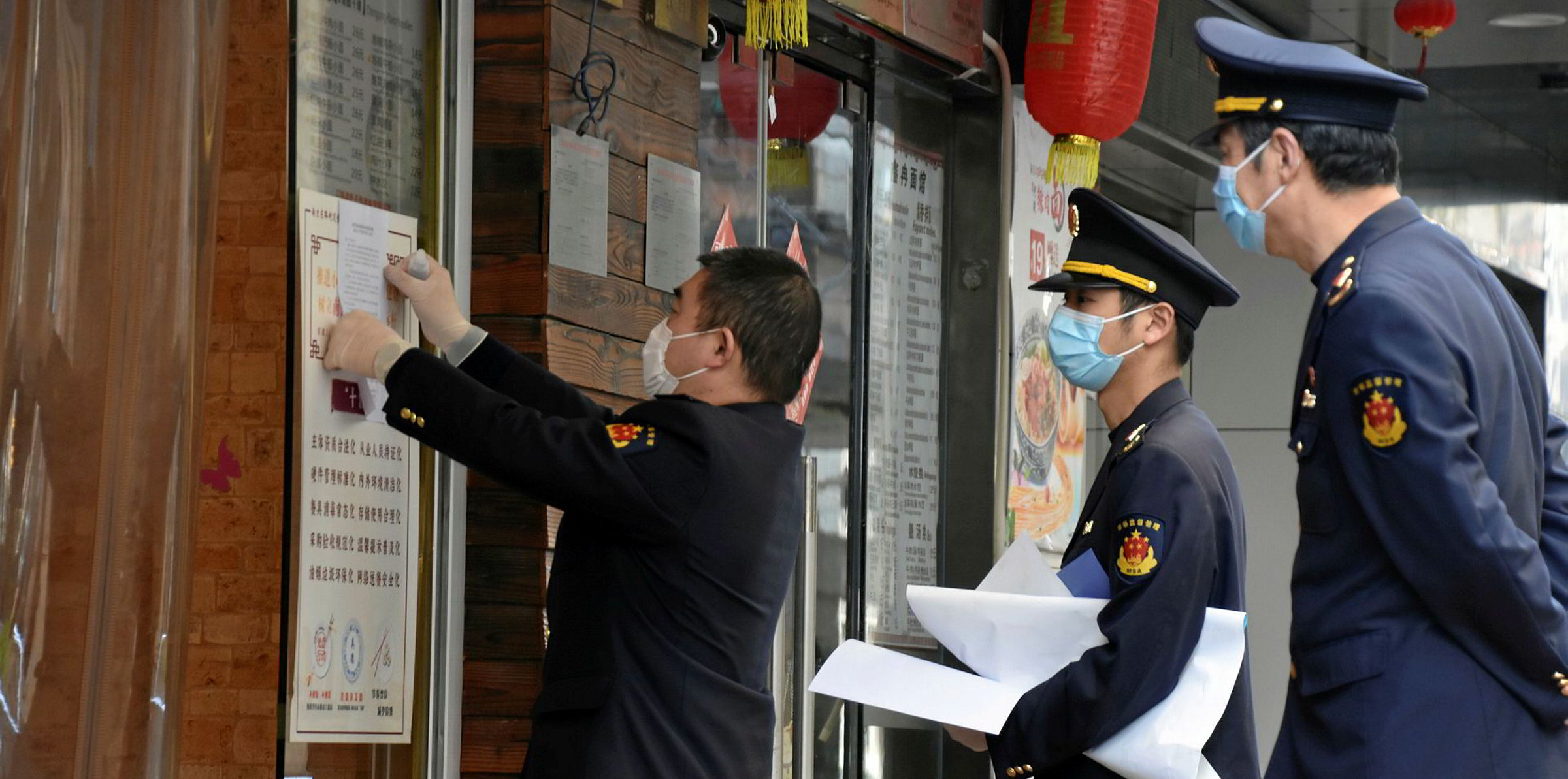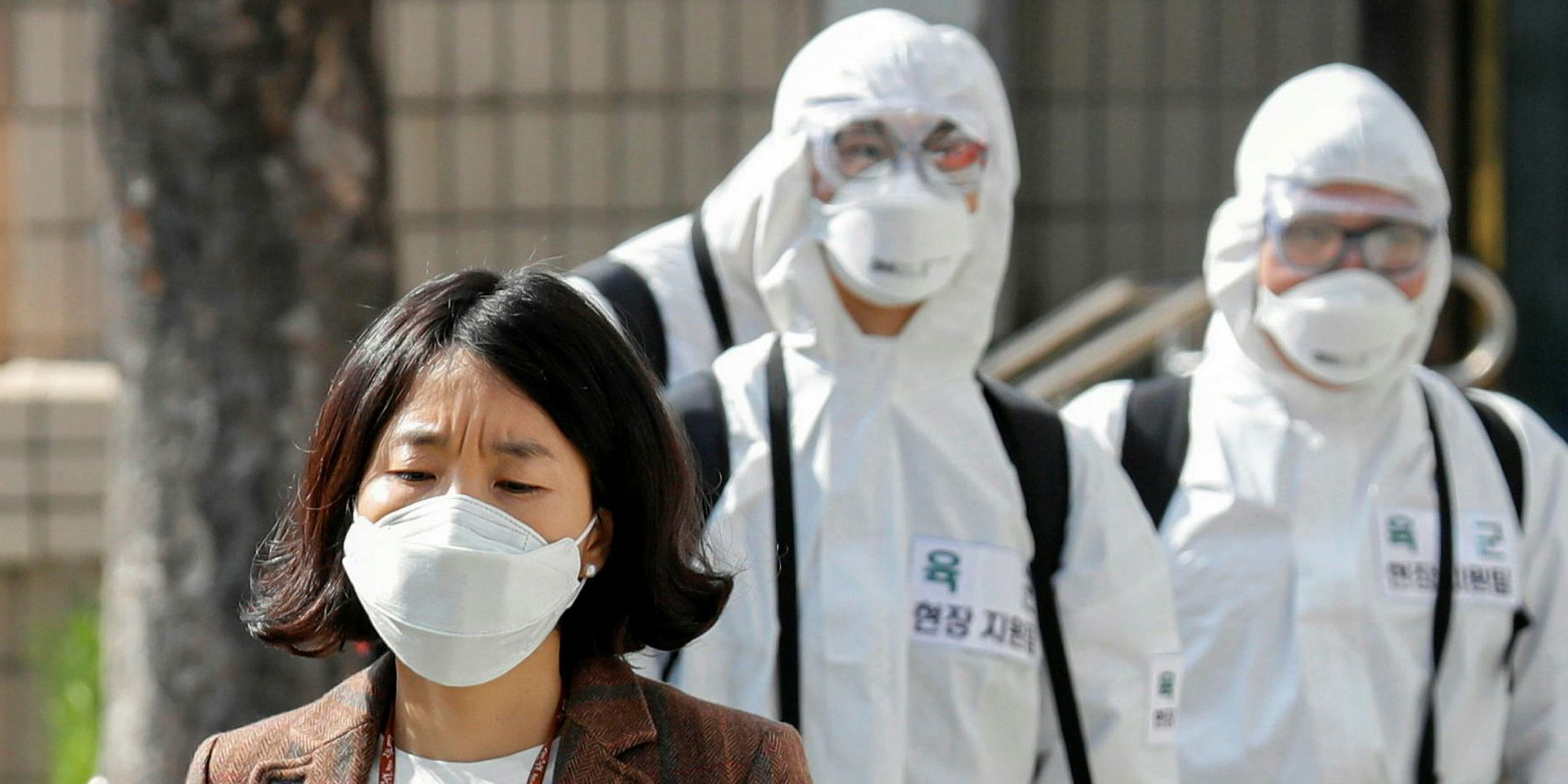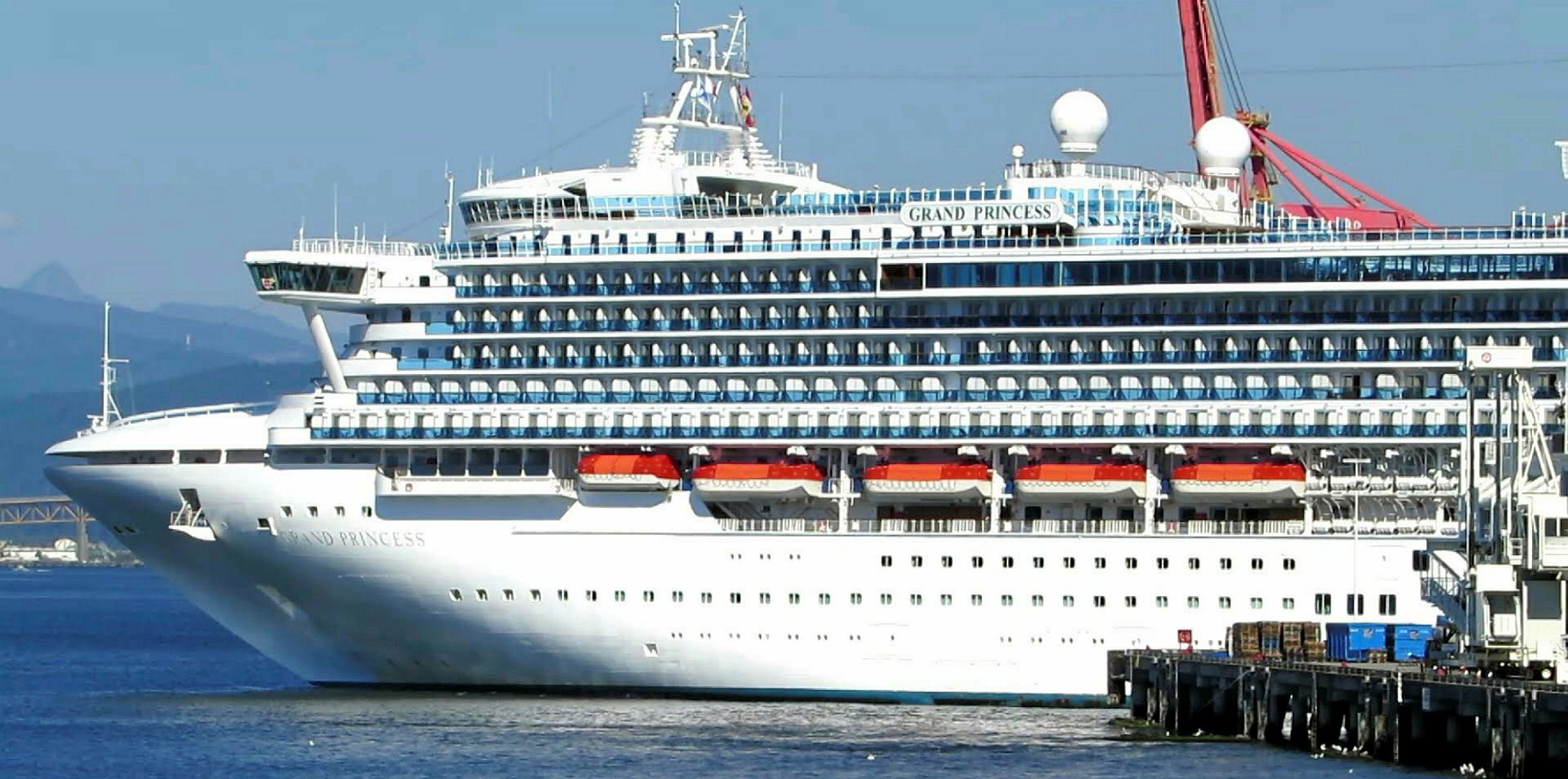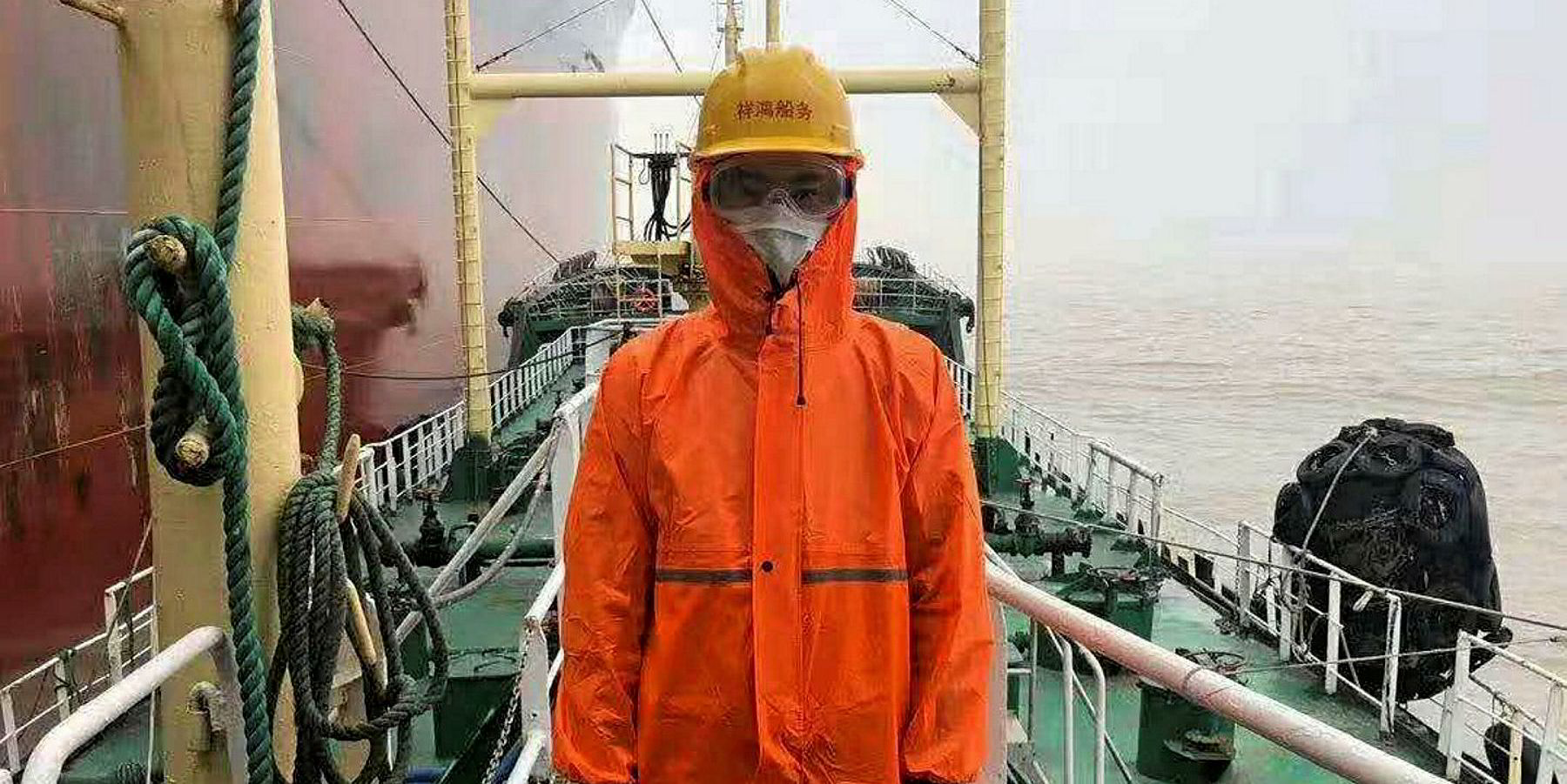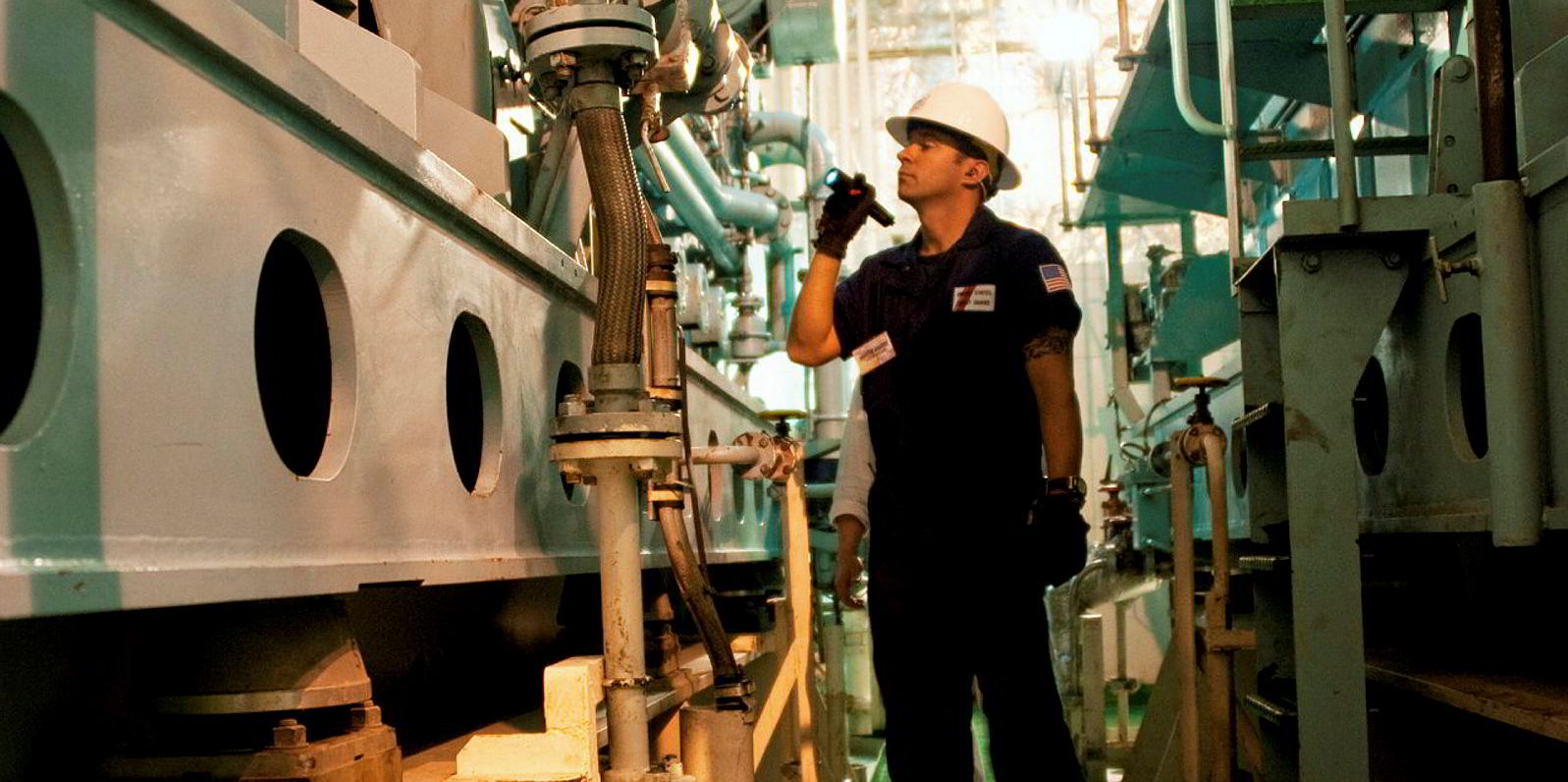Beijing has been issuing "force majeure certificates" to give Chinese shipyards an escape hatch in the face of coronavirus-related claims — but they may not be worth the paper they are written on.
According to leading lawyers, the reason is this: Chinese and English law are a world apart on the ways in which unforeseeable and inescapable events can set aside a contract.
Since late January, when the epidemic exploded, the China Council for the Promotion of International Trade has handed out certificates vouching for the helplessness of shipyards faced with commercial complications caused by Covid-19, especially labour disruptions.
But arbitration panels are unlikely to recognise these documents as tickets to extending deadlines on newbuilding contracts.
Such certificates may not have the force of law even within China, according to maritime dispute specialist Marcus Gordon, a partner at London-headquartered law firm Watson Farley & Williams.
His warning is echoed by Chinese and international lawyers advising shipbuilding and other clients, such as Chinese energy companies that have cited coronavirus in a bid to reduce contracted LNG import volumes.
Chinese equivalent
Force majeure refers to events beyond the control of the parties to a contract that may give rise to justifiable delays, for which arbitrators and judges will not impose liquidated damage compensation on the non-performing party. These include actions of governments, typhoons and indeed epidemics.
Chinese contract law has a statutory definition of something closely corresponding to force majeure, under which "objective situations that are unforeseeable, unavoidable and insurmountable" give rise to a right to cancel. Many civil law jurisdictions also prescribe criteria for force majeure.

But in common law jurisdictions, such as England, whose law governs nearly all shipbuilding transaction disputes under standard contract clauses, force majeure is not for governments to legislate, but for parties to negotiate and agree as part of a contract.
For this reason, arbitrators with a shipbuilding delay or cancellation case before them are likely to ignore a government's declaration that force majeure exists.
Standard newbuilding contracts specifically allow that epidemics and government actions may give rise to force majeure, but Gordon believes that a coronavirus-related defence could face problems before an arbitration panel, even given the Chinese government's quarantine and work stoppage orders.
Failure to prepare
That is because lawyers for shipowners will be able to argue that the proximate cause of delayed performance was not the epidemic itself, but a yard's failure to prepare for it — especially since previous epidemics have put the shipbuilding industry on notice that the subcontracting of labour left them vulnerable to such disruptions.
Speaking to TradeWinds, Gordon gave the example of a recent dispute in which a typhoon toppled a large travelling gantry crane at an unnamed yard, delaying a series of newbuildings. The yard gave notice of force majeure, but the owner's lawyers successfully argued that the cause was failure to secure the equipment when the typhoon was approaching.
"If you parked a car at the top of a hill without the handbrake on, who would be to blame if it rolled down the hill and crashed?" Gordon asked. "What was really the cause, the law of gravitation, or the handbrake?"
Instead of relying on government certificates, he said, Chinese and other yards should be prepared with thorough documentation to prove that unavoidable forces disrupted the "critical path" of their shipbuilding jobs.
Strict proof
Likewise, shipowners hoping to beat such claims by the yards "should put builders to strict proof and not be intimidated by apparent compliance" with force majeure requirements.
From a "plain English" reading, force majeure clauses could arguably cover the coronavirus crisis, with the World Health Organization declaring a pandemic and public health emergency, and Beijing backing up the position of shipyards with its certificates. But Gordon believes that is not likely to be enough.
"None of these factors, whether taken in isolation or together, is likely to be sufficient to qualify the coronavirus as a force majeure event," he wrote in a customer advisory.
